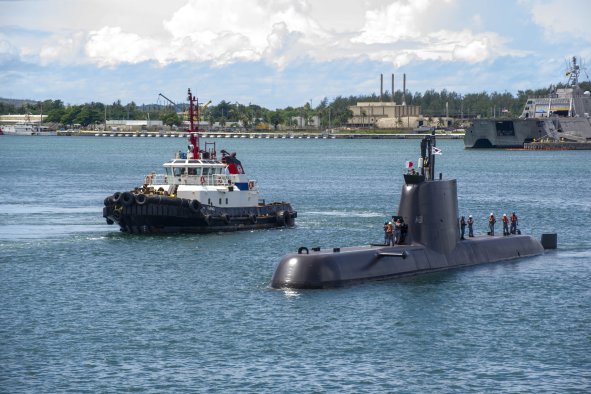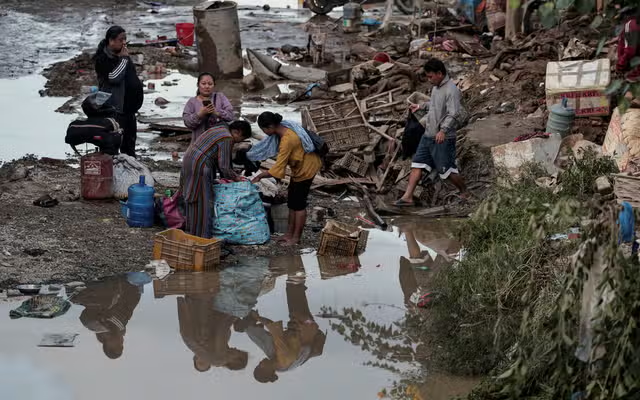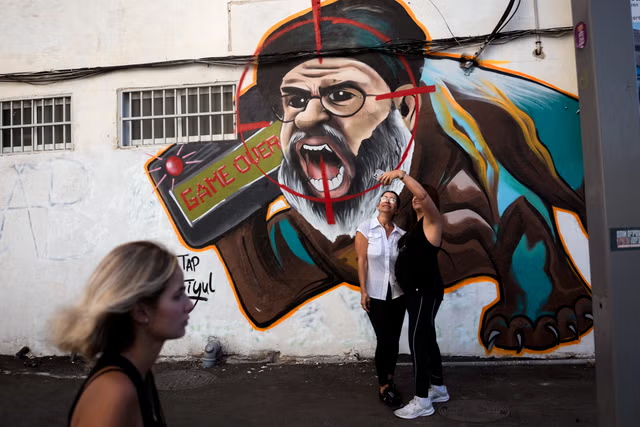Moscow has responded to the prediction by Serbia's president that the conflict in Ukraine would continue for years and that its end would be along the lines of the cessation of hostilities in the Korean War.
When asked about the war started by Vladimir Putin, Aleksandar Vučić told the Serbian outlet Informer that "in the end, there will be peace, so the fight will be strong for every village."
"The Korean scenario will be reached, and it will not have a solution in 10, 20 or 30 years, and it will be the essential solution to the conflict in Ukraine," he added according to a translation.
He provided no further details about his comparison but the Korean War ended in 1953 with an armistice but with no peace treaty signed.
When asked about Vučić's comments, Kremlin spokesman Dmitry Peskov said on Monday that "we proceed from the fact that the special military operation should end with the achievement of all the goals set," state news agency Tass reported.
The Kremlin's aims for its invasion of Ukraine are ambiguous but broadly include the weakening or disrupting Kyiv's ties with NATO, curbing Ukrainian nationalism and expanding territorial gains.
Vučić also said in the interview that the war started by Putin had become of less interest to the U.S. population and that Washington "will fight Russia hard in Ukraine, but it will also look after its own interests."
"It is stupid to underestimate the Russian army, and they have also underestimated the Russian economy, which has not felt the consequences," he added.
Belgrade-based political analyst Nikola Mikovic told Newsweek that pro-government Serbian media reported on Vučić's statement.
"It was a message to his pro-Russian audience," he said, and regarding his comments about the Russian army and economy, "that's exactly what they want to hear."
"He has a history of wrong predictions when it comes to the Ukraine war, which is why I don't take his statements too seriously. Most of his statements regarding the war in Ukraine are aimed at a specific segment of the audience," Mikovic said.
Since the start of the war, Serbia has refrained from imposing sanctions on Moscow. However, it has condemned Russia's invasion of Ukraine, and backed anti-Russian resolutions at the U.N. General Assembly as well as the International Criminal Court's (ICC) arrest warrant for Putin.
Belgrade also reportedly sells weapons to Ukraine through intermediaries.
Separately, Putin marked the second anniversary of Moscow's declaration that it had annexed the Ukrainian regions of Donetsk, Luhansk, Zaporozhzhia and Kherson, although they are not fully controlled by Moscow.
"The truth is on our side. All goals set will be achieved," Putin said in the video address marking what he calls "Reunification Day."
Disclaimer: The copyright of this article belongs to the original author. Reposting this article is solely for the purpose of information dissemination and does not constitute any investment advice. If there is any infringement, please contact us immediately. We will make corrections or deletions as necessary. Thank you.



